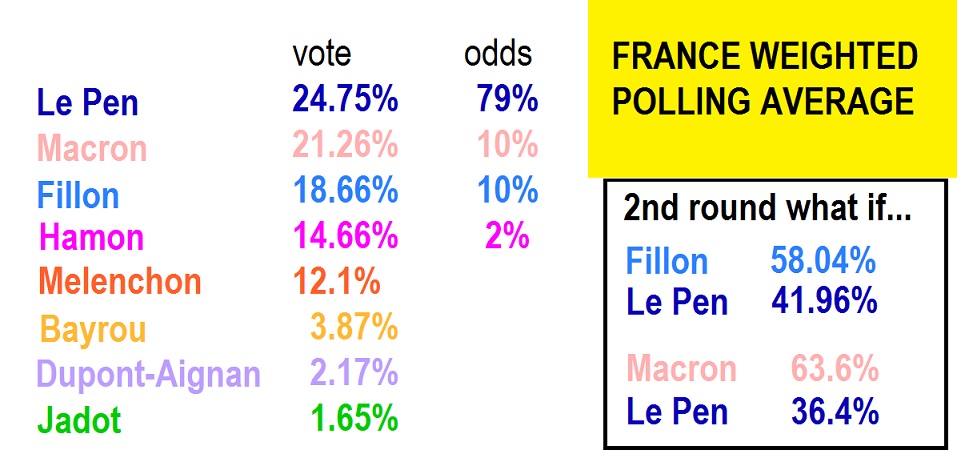Tuesday, February 28, 2017
Friday, February 24, 2017
Thursday, February 23, 2017
Tuesday, February 21, 2017
Saturday, February 18, 2017
Thursday, February 16, 2017
Wednesday, February 15, 2017
Tuesday, February 14, 2017
Sunday, February 12, 2017
Saturday, February 11, 2017
Friday, February 10, 2017
I guess PEI has gerrymandering
CHARLOTTETOWN, PEI – Several of PEI's electoral districts are currently illegal in size and must change, says the chairman of the province’s electoral boundaries commission.
Gerard Mitchell, a former chief justice, says a review of PEI’s electoral districts may have just begun, but a cursory glance at the population in each of the Island’s 27 districts reveals a real need for a new electoral map.
“We’ll definitely have to make some adjustments to the ridings because right now several of them are illegal by any standard,” Mitchell said.
“By that, I mean at present there's 3 districts that are more than 25% above or below (population) average. That’s forbidden by the Electoral Boundaries Act.”
District 6 Stratford-Kinlock currently has the largest number of voters PEI with 5,317 registered electors.
This is despite the fact the average number of voters in each district should be 3,698, which makes Stratford-Kinlock 43% too large and well over the 25% variance permitted by law.
Advertisement
We’ll definitely have to make some adjustments to the ridings because right now several of them are illegal by any standard. By that, I mean at present there are 3 districts that are more than 25% above or below (population) average. That’s forbidden by the Electoral Boundaries Act.Gerard Mitchell
Even Premier Wade MacLauchlan’s own riding of York-Oyster Bed's larger than the law permits, with 5,017 electors.
Meanwhile, a number of ridings contain well under the average number of voters, including Tignish-Palmer Road, Charlottetown-Victoria Park and Charlottetown-Brighton.
But population's only 1 of the considerations of the 5-member electoral boundaries commission as it considers how PEI’s new electoral map should look.
The commission will also take into account geographical features of an area, municipal boundaries, polling divisions from the last provincial election and the Charter of Rights and Freedoms.
It can also designate an area a “community of interest,” that could include exceptions to population requirements in order to protect or maintain a certain cultural or economic community.
“You might go into an area, for example, where there’s a whole lot of fishermen or there’s a fish plant, and that might be a community of interest where most of the people work in that industry,” Mitchell explained.
Evangeline-Miscouche was previously identified as a community of interest in order to ensure representation of the Acadian community in the PEI legislature. This allowed the district a smaller number of electors.
PEI’s electoral boundaries haven't changed since 2006 – a process that became highly controversial for the Progressive Conservative government of the day.
An electoral map developed by an independent commission in 2004 was thrown out by the Pat Binns government, as was a 2nd map drawn by Elections PEI. Instead, the government adopted a 3rd map, drawn by then-PC backbench MLA Cletus Dunn.
The Liberal Opposition, led by Robert Ghiz, accused the Binns government of gerrymandering and staged a walk out of the legislature.
Changes have since made to Electoral Boundaries Act that'll make the final recommendations from the electoral boundaries commission binding this time.
But Mitchell notes the legislature “could always change its mind at some point.”
The commission's launching a series of 14 public meetings this week, beginning in Summerside Tuesday and ending in Montague March 28. If Islanders have strong feelings about the makeup of their electoral district, Mitchell suggests they come to a meeting or make a written submission to “make their case.”
“If they can make a strong enough case for their position, we’ll listen to it and pay attention to it.”
Mitchell says he hopes the final report of the commission will be complete by the end of April.
Wednesday, February 8, 2017
Tuesday, February 7, 2017
Sunday, February 5, 2017
Friday, February 3, 2017
Wednesday, February 1, 2017
Subscribe to:
Comments (Atom)




























